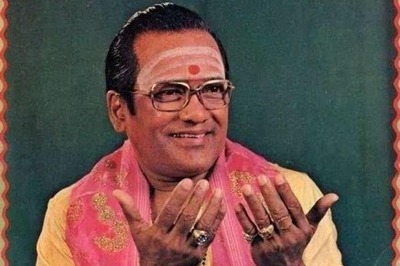
views
Vertigo is a health condition generally characterized by a spinning, dizziness, or off-balance experience. It can be caused by various underlying conditions which can also be primarily related to issues in the inner ear or brain. Lacking proper information, people generally consider dizziness and vertigo to be same. Dr Sanjay Sachdeva, senior ENT consultant, HearClear India helps us debunk some common myths about vertigo.
Myth #1 Vertigo and dizziness are the same thing
Fact – People very often get confused between vertigo and dizziness, failing to differentiate one from the other. But both the conditions portray different symptoms, where vertigo is a sensation of spinning as if going on a merry-go-round. Dizziness or imbalance applies to unsteadiness or maintain balance.
Myth #2 Vertigo is a brain problem, and spinning sensation is the only symptom of the condition
Fact – People believe that vertigo occurs due to problems in the brain. Though there are a lot of reasons for vertigo, an inner ear problem is one of the major reasons responsible for the condition. Ear infections or inflammation, stress, neurological issues, hormonal changes, etc. are other factors that can trigger vertigo.
Additionally, spinning as in vertigo is accompanied with nausea, vomiting, changes in hearing or ringing sensation in the ear, headache, etc.
Myth #3 There is no cure available for vertigo
Fact – There is a misunderstanding that there is no treatment for vertigo and one has to live with it for their entire lives. Many a time, those suffering from the condition resort to homemade remedies such as flushing the ear, which can be harmful and may have a damaging effect on the eardrum.
One should seek immediate medical treatment from ENT specialists or neurologists on experiencing a decrease in hearing or persistent ringing in the ear. Early diagnosis can help in timely and efficient treatment of the condition. Undertaking the right medication, physical therapy, and lifestyle alteration can significantly help in treating the condition.
Myth #4 There is no impact on hearing due to vertigo
Fact – Disorder in the inner ear can be considered as a major cause giving rise to vertigo. The inner ear plays a critical role in maintaining balance and supporting the hearing ability of the person. Therefore, vertigo can also disturb the hearing ability.
Myth #5 Only the elderly are affected by vertigo
Fact – Vertigo can be a common occurrence in adults but is not necessarily limited to them. People of all ages, including children, can also be affected by vertigo, as it is primarily caused by infection, injuries, and other conditions.




















Comments
0 comment